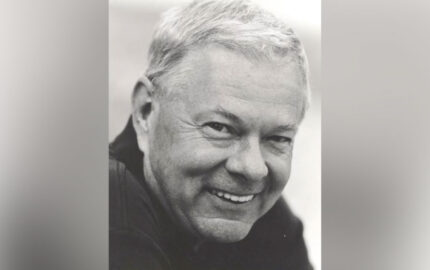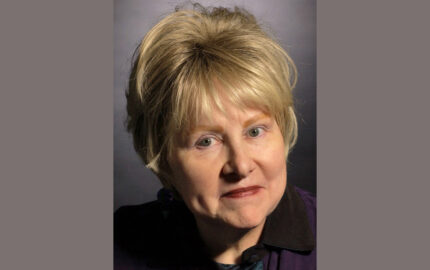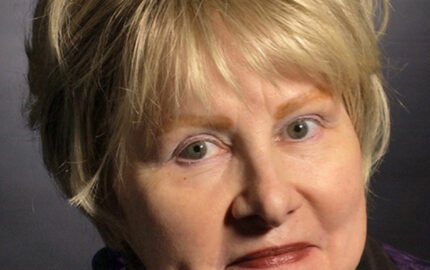Robert Manning, an influential editor of The Atlantic Monthly and a 1946 Nieman Fellow, died of lymphoma at a hospital in Boston on Sept. 28, 2012. He was 92.
Manning was editor in chief of the magazine, now called The Atlantic, from 1966 to 1980, a period during which its circulation grew from 200,000 to 335,000. He also hired or helped further the careers of several major writers, including James Fallows, Elizabeth Drew, Ward Just, James Alan McPherson, L.E. Sissman, Ross Terrill, Tracy Kidder, and Dan Wakefield.
“Bob Manning was a very graceful writer and a talented editor, a proud and witty man, a gregarious and devoted and big-hearted friend,” Fallows wrote in a remembrance on The Atlantic’s website. “During his nearly 15 years as The Atlantic’s editor, he brought the magazine into the center of covering the big events of that time, notably the Vietnam war, civil rights progress and tumult, the economic transformations of the oil-shock and stagflation era, the cultural rending and refashioning of American society, the Watergate-induced changes in DC politics, and much else.”
Manning’s reign ended in controversy when real estate developer Mortimer Zuckerman bought the magazine at Manning’s urging. After the deal had been signed, Zuckerman refused to pay more than a quarter of the agreed-upon $3.6 million price. In addition, Zuckerman went behind Manning’s back, “bounding about like a wallaby in heat in search of a new editor in chief,” as Manning put it in his 1992 memoir, “The Swamp Root Chronicle: Adventures in the Word Trade.” Manning resigned at the end of 1980.
Born and raised in Binghamton, New York, Manning worked at the Binghamton Press as a copy boy while in high school and was quickly promoted to reporter. He later worked in The Associated Press’s Buffalo bureau, then spent a year in the Army before joining the United Press in Washington and New York. In 1949 he was hired by Time magazine. He edited and wrote for the national affairs and foreign news sections and served as London bureau chief. He left in 1961 to become Sunday editor of The New York Herald Tribune.
The following year he became assistant secretary of state for public affairs under Secretary of State Dean Rusk, President Kennedy’s. He held the position for two and half years before becoming executive editor at The Atlantic Monthly and was named the 10th editor in chief in 1966. After leaving the magazine in 1980, he became part owner of the Boston Publishing Company, overseeing its successful 25-volume series “The Vietnam Experience.”
His first wife Margaret, died in 1984. He is survived by his second wife, Theresa, two sons, and four grandchildren. A third son died in 2004.
Manning was editor in chief of the magazine, now called The Atlantic, from 1966 to 1980, a period during which its circulation grew from 200,000 to 335,000. He also hired or helped further the careers of several major writers, including James Fallows, Elizabeth Drew, Ward Just, James Alan McPherson, L.E. Sissman, Ross Terrill, Tracy Kidder, and Dan Wakefield.
“Bob Manning was a very graceful writer and a talented editor, a proud and witty man, a gregarious and devoted and big-hearted friend,” Fallows wrote in a remembrance on The Atlantic’s website. “During his nearly 15 years as The Atlantic’s editor, he brought the magazine into the center of covering the big events of that time, notably the Vietnam war, civil rights progress and tumult, the economic transformations of the oil-shock and stagflation era, the cultural rending and refashioning of American society, the Watergate-induced changes in DC politics, and much else.”
Manning’s reign ended in controversy when real estate developer Mortimer Zuckerman bought the magazine at Manning’s urging. After the deal had been signed, Zuckerman refused to pay more than a quarter of the agreed-upon $3.6 million price. In addition, Zuckerman went behind Manning’s back, “bounding about like a wallaby in heat in search of a new editor in chief,” as Manning put it in his 1992 memoir, “The Swamp Root Chronicle: Adventures in the Word Trade.” Manning resigned at the end of 1980.
Born and raised in Binghamton, New York, Manning worked at the Binghamton Press as a copy boy while in high school and was quickly promoted to reporter. He later worked in The Associated Press’s Buffalo bureau, then spent a year in the Army before joining the United Press in Washington and New York. In 1949 he was hired by Time magazine. He edited and wrote for the national affairs and foreign news sections and served as London bureau chief. He left in 1961 to become Sunday editor of The New York Herald Tribune.
The following year he became assistant secretary of state for public affairs under Secretary of State Dean Rusk, President Kennedy’s. He held the position for two and half years before becoming executive editor at The Atlantic Monthly and was named the 10th editor in chief in 1966. After leaving the magazine in 1980, he became part owner of the Boston Publishing Company, overseeing its successful 25-volume series “The Vietnam Experience.”
His first wife Margaret, died in 1984. He is survived by his second wife, Theresa, two sons, and four grandchildren. A third son died in 2004.


